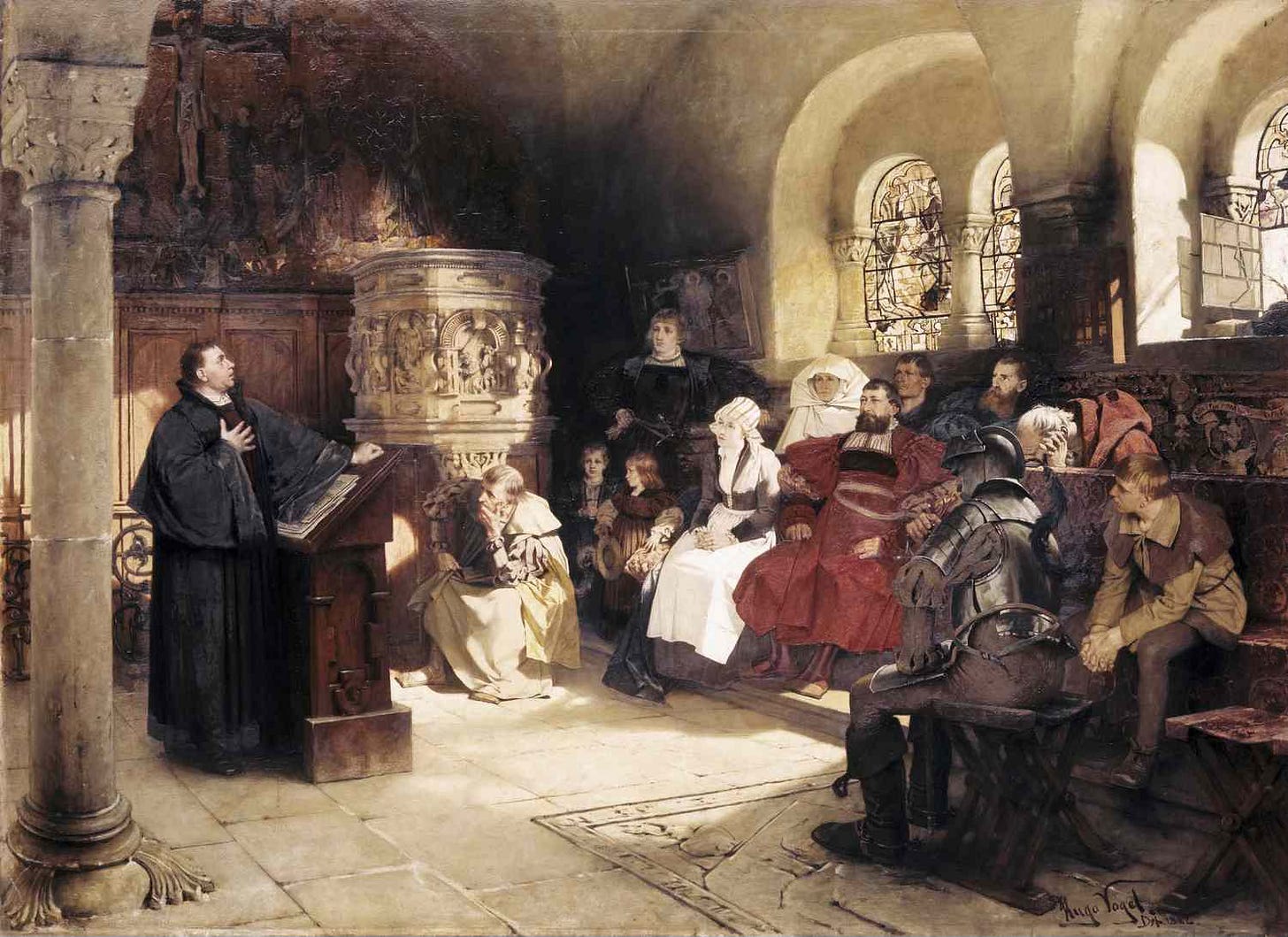Lutheranism. In conventional discourse, the emphasis often is not placed on Word and Sacrament, but reliability, emotion, or experience. Many corresponding conditions have been applied to Lutheranism; it is “experiential,” “culturally dynamic,” or “deeply personal.”
A recent claim I have observed is the idea that Lutheranism is the right profession of faith because it is the “perfect blend of traditional Christian values with modern and contemporary applications.” The “dynamic nature” of the Lutheran tradition allows for its incorporation of contemporary styles and use of modern technologies to provide a sense of relatability and a sense of theological continuity.
I do not share this claim jokingly—nor do I disagree in theory. I believe that Lutheranism is the right profession of faith because, above all, it adheres in the strictest sense to Scripture. Its entire confession of faith is in full alignment with the inspired and inerrant Word of God. For this reason, Lutheranism is a dynamic blend of traditional Christian values (that is to say, biblical doctrine) and “contemporary applications.”
The point with which I disagree is the “contemporary applications” for which Lutheranism is purportedly suitable. Many consider these contemporary applications to be factors that fundamentally alter Lutheran teaching and practices. The times have changed, and the Church must follow. Our teachings must change, and our practices must be modified. Such is the conventional wisdom of “contemporary Christianity”—which non-confessional Lutherans blindly follow.
For many, Lutheranism is alterable. It is contemporary because it necessarily changes.
Yet Lutheranism is dynamically suitable for modernity because it is the true and correct profession of the Christian faith. Many other Christian traditions exist, but Lutheranism is the most faithful and accurate profession of the Christian faith. It is harmonious with the faith of the Apostles, synchronous with ancient Christian doctrine, and continuous with the timeless expression of this faith in the Church through Word and Sacrament.
The traditional liturgy, orthodox Christian doctrine, and strict adherence to the Scriptures are—among many other beautiful traditions, practices, and beliefs—timeless elements of Christendom. Thus, they are invariably contemporary. These practices and traditions are not confined to nor defined by a particular time or place. As the Word of God from which these practices are derived is eternal and unchanging, so also are these gifts from God to the Church timeless and contemporarily applicable.
Lutheranism is centered on and grounded in Word and Sacraments—the most sacred treasures of Christendom. They are unchanging, unalterable, and irreplaceable. These beautiful and precious gifts are given by God to the Church of all times and in all places, and are neither confined to nor defined by a time in history or period of human development. The Word is eternal, and God’s gifts are perpetual.
Lutheranism’s “dynamic nature” is not so because it is suited to change with the times, nor do its “contemporary applications” reflect their changing and unsteady worldly environment. Lutheranism is contemporary because it is unchanging and eternal; the Church’s teachings are not altered, and her practices are not abolished. Its applicability rests on its steadiness in doctrine and immovability in teaching.
To what could we cling if our doctrine depended on its cultural or societal context? To what would our continuity with the Church of old amount to if that continuity did not define our character but was rather influenced by the world’s changing nature? The world will change, but it will always need the inflexibility and permanence of the Christian faith. Lutheranism is contemporarily applicable because it cannot be changed. It provides the stability and doctrinal security which the world cannot offer.
The historic mass, the faithful preaching of the Word and right administration of the Sacraments, traditional theology and historical doctrine, the beautiful way of Christian living defined as early as the late first century by the Apostles in the Didache—these and so many timeless gifts are the sum of the Christian life. It is what makes Lutheranism both dynamic and contemporary. Its historicity and congruity with the apostolic Church serve as its foundation, just as our cornerstone is Christ alone.
The devil wants nothing more than Christendom’s demise. He robs Christian souls of faith’s dependence and stability—and when he does, his work is already complete. If the Christian is led to believe that the faith must be fitted to the instability of the world, then faith is meaningless. If Christ is not the solid and unchanging rock on which faith is built, then the Gospel provides no comfort. May God guard His sheep against the devil’s perilous and malicious assaults! Take comfort in the timeless and sacred comfort that the Gospel alone can give.





This is most certainly true. Your clarification is so important: "Lutheranism is contemporary because it is unchanging and eternal; the Church’s teachings are not altered, and her practices are not abolished. Its applicability rests on its steadiness in doctrine and immovability in teaching." Thanks for the post.
I am sure all of us are wrong about all sorts of things, but as far as I can tell, Lutheranism is correct.